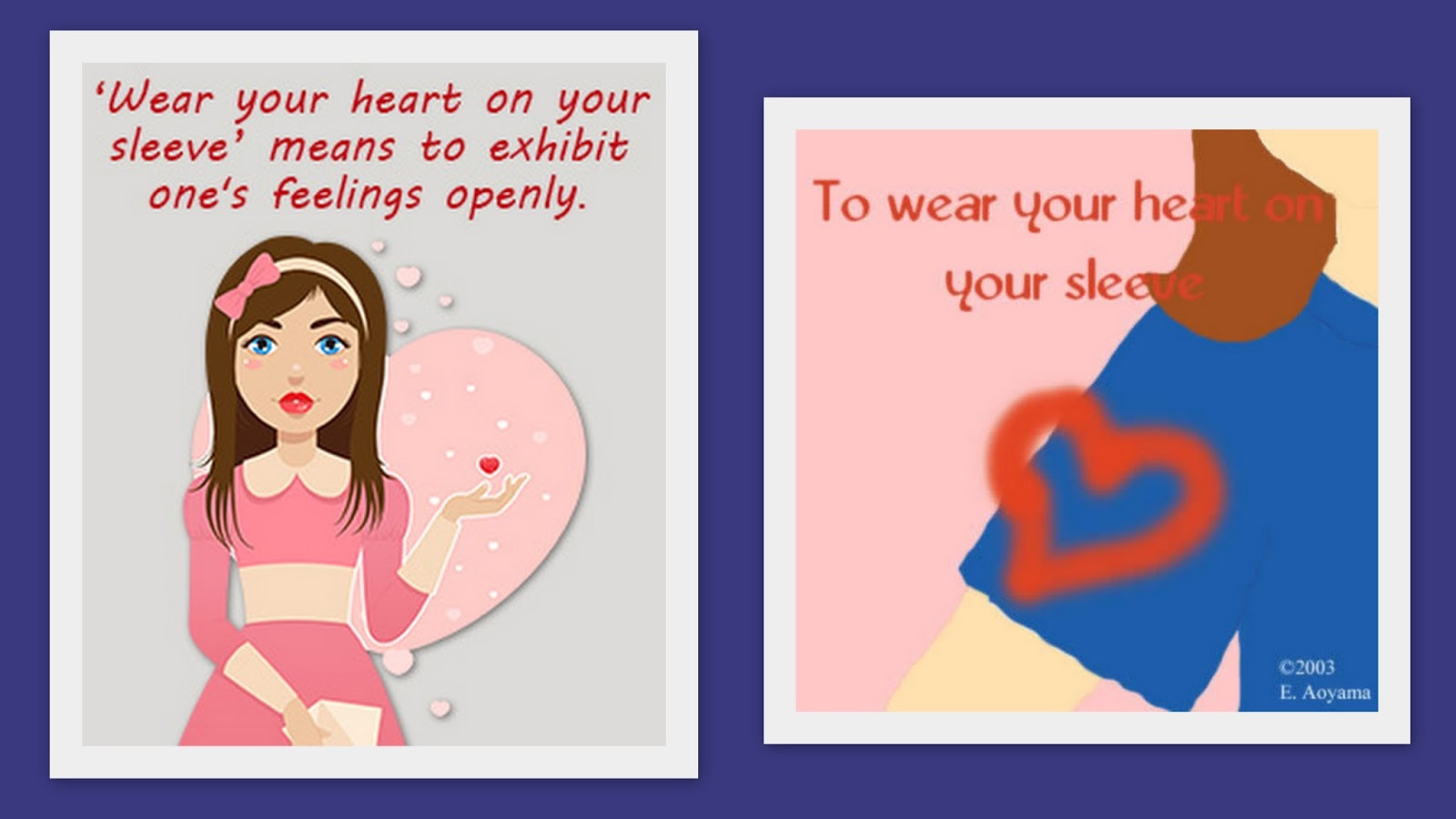Wearing your heart on your sleeve is a phrase that resonates deeply in the fabric of human emotion and communication. This idiom signifies a candid display of one’s feelings, emotions, and thoughts without any pretense or concealment. The expression suggests a level of vulnerability and openness that can be both refreshing and daunting. In this article, we will delve into the origins, meaning, and implications of this intriguing phrase, as well as explore its relevance in modern language and relationships.
Throughout history, the concept of emotional transparency has been a subject of fascination and debate. Many cultures celebrate individuals who openly express their feelings, while others may view such behavior as a weakness. Regardless of the varying perceptions, the act of wearing your heart on your sleeve has significant implications for personal relationships, emotional health, and social interactions. Understanding this expression can lead to deeper self-awareness and enhanced communication skills.
This comprehensive exploration will provide insights into the various contexts in which this phrase is used, its literary origins, and its application in daily life. Additionally, we will analyze the psychological effects of emotional vulnerability and how it can impact our relationships with others. By the end of this article, you will have a clearer understanding of what it truly means to wear your heart on your sleeve.
Table of Contents
- Origin of the Phrase
- Meaning of Wearing Your Heart on Your Sleeve
- Cultural Context and Variations
- Psychological Effects of Emotional Vulnerability
- Impact on Personal Relationships
- Literary Usage and Examples
- Modern Usage in Everyday Life
- Conclusion
Origin of the Phrase
The phrase "wearing your heart on your sleeve" finds its roots in medieval times. It is believed to have originated from the practice of knights who would wear their lady's colors on their sleeves during tournaments. This act was a public declaration of their affection and loyalty. Over time, this gesture evolved into a metaphor for openly displaying one’s emotions.
One of the earliest recorded uses of the phrase dates back to the 13th century, appearing in literature by the famous poet Geoffrey Chaucer. In his works, Chaucer often explored themes of love and emotional expression, which contributed to popularizing this idiom. The phrase has since become a staple in the English language, symbolizing emotional honesty and vulnerability.
Meaning of Wearing Your Heart on Your Sleeve
To wear your heart on your sleeve means to openly show your emotions and feelings, often without fear of judgment or rejection. This expression conveys a sense of authenticity and a willingness to be vulnerable in front of others. Individuals who embody this phrase tend to express their joy, sadness, love, and other emotions freely, making them more relatable and approachable.
Significance of Emotional Transparency
- Fosters trust in relationships.
- Encourages open communication.
- Promotes emotional healing and self-acceptance.
- Enhances connection with others.
Cultural Context and Variations
The concept of wearing your heart on your sleeve is not universally accepted in all cultures. In some societies, emotional restraint is valued, and openly expressing feelings may be seen as a sign of weakness. However, in Western cultures, particularly in the United States and Europe, emotional openness is often celebrated as a hallmark of strong interpersonal relationships.
In various cultural contexts, there are unique expressions akin to wearing your heart on your sleeve. For example, in Spanish, the phrase "llevar el corazón en la mano" translates to "to carry your heart in your hand," conveying a similar meaning of emotional openness. Such expressions reflect the universal human experience of love and vulnerability.
Psychological Effects of Emotional Vulnerability
Wearing your heart on your sleeve can have profound psychological effects. While it can foster deeper connections with others, it can also lead to emotional strain if not managed properly. Here are some psychological aspects to consider:
Positive Effects
- Increased emotional intelligence.
- Strengthened relationships.
- Enhanced self-awareness.
Negative Effects
- Risk of emotional burnout.
- Potential for vulnerability exploitation.
- Increased anxiety in social situations.
Impact on Personal Relationships
Wearing your heart on your sleeve can significantly impact personal relationships. Those who practice emotional transparency often find themselves forming closer bonds with friends, family, and romantic partners. Here are some ways this expression influences relationships:
- Building Trust: Openly sharing feelings fosters trust and understanding.
- Conflict Resolution: Honest communication helps in resolving conflicts more effectively.
- Emotional Support: Vulnerability invites emotional support and empathy from others.
Literary Usage and Examples
The phrase "wearing your heart on your sleeve" has been widely used in literature, songs, and popular media to convey themes of love, vulnerability, and emotional honesty. Here are a few notable examples:
- Shakespeare: In many of Shakespeare's plays, characters express their emotions openly, embodying the essence of this phrase.
- Modern Music: Numerous songs explore themes of emotional openness, such as "Heart on My Sleeve" by various artists.
Modern Usage in Everyday Life
In today's fast-paced world, the concept of wearing your heart on your sleeve remains relevant. Many individuals strive to embrace emotional transparency as a means of improving their mental health and relationships. Social media platforms have also provided a space for people to express their feelings openly, further popularizing this idiom.
However, it is essential to find a balance between emotional openness and self-protection. While sharing feelings can strengthen bonds, it's crucial to assess when and with whom to share personal emotions.
Conclusion
In summary, wearing your heart on your sleeve is an expression that encapsulates emotional honesty and vulnerability. It has rich historical roots and continues to play a vital role in modern communication. By understanding and practicing this concept, individuals can foster deeper connections, improve communication skills, and enhance their emotional well-being.
We invite you to reflect on your own experiences with emotional transparency. Have you found wearing your heart on your sleeve beneficial in your relationships? Share your thoughts in the comments below, and don't forget to explore other articles on our site for more insights!
Penutup
Thank you for taking the time to read our exploration of wearing your heart on your sleeve. We hope you found this article informative and engaging. We look forward to welcoming you back for more enriching content that enhances your understanding of language and relationships.


